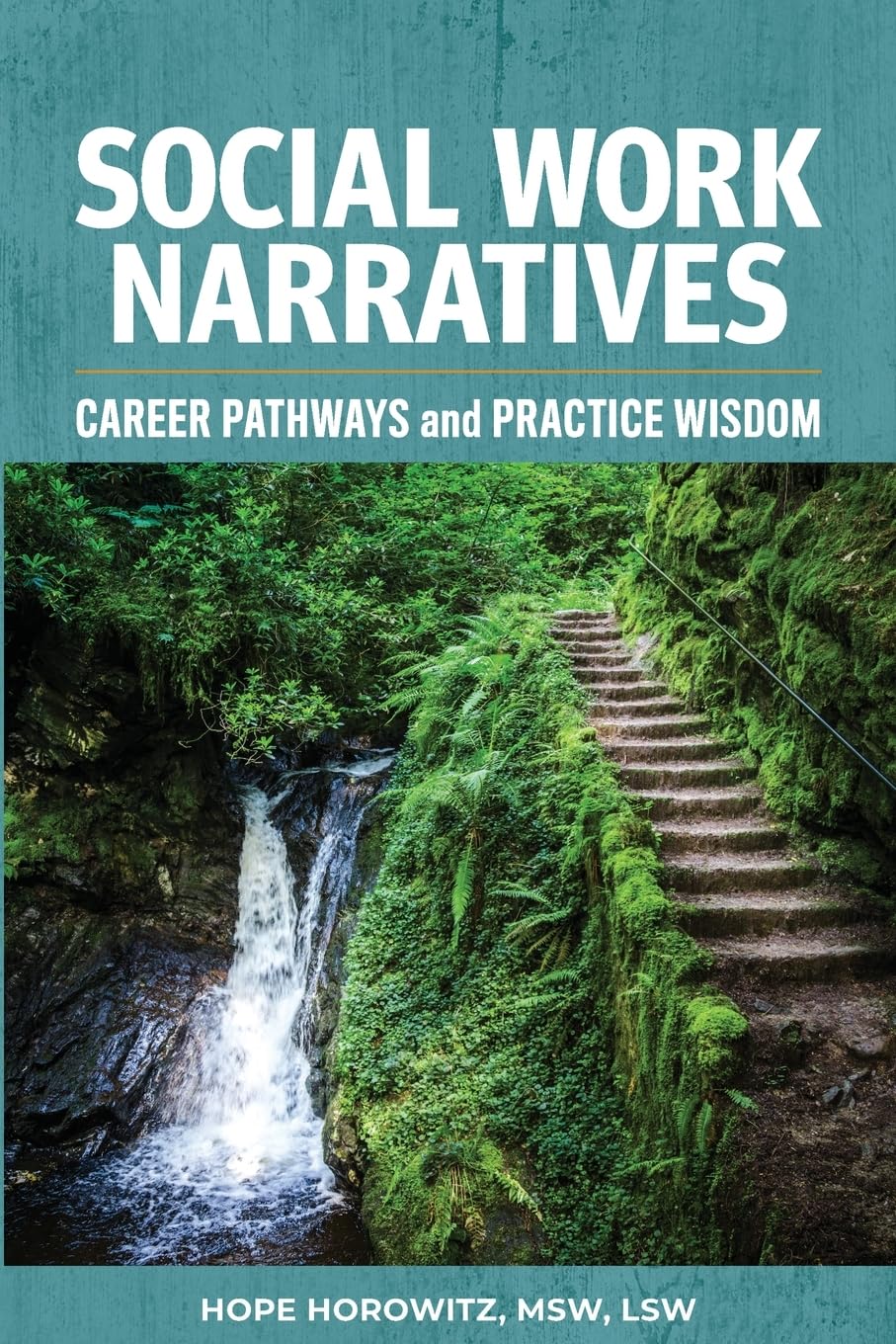Taking a sabbatical last year gave Northampton Community College (NCC) Professor of Social Work, Hope Horowitz, MSW, LSW, the time to write a book. She had 42 years of experience as a social work practitioner, administrator, trainer, and educator as potential source material.

She could have drawn on her efforts advocating for social justice, her development of educational travel programs, her coordination of and instruction in NCC’s social work program, and her external leadership positions within her field. Instead, Horowitz asked former students and others to share their experiences and edited their responses. The resulting book, Social Work Narratives: Career Pathways and Practice Wisdom, contains the personal accounts of 21 social workers, who discuss their education, work experience, lessons learned, advice, and self-care tips.
Stories of Social Work
“I noticed that since COVID, more students tend to go online to take my courses,” says Horowitz. “I usually bring guest speakers to class, but the students online don’t have that benefit. So, I thought it would be nice to have stories of different social workers — their life experiences and what they do in social work — so that students could see the versatility of the profession.”
Horowitz started with a list of 60 to 70 people she knew personally before narrowing it down. She says it was important to represent different backgrounds, identities, and experience levels, from young practitioners to someone with over 50 years in the field.
“I feel very honored to have gotten people's stories,” she says. “My own mentor has since passed away, so, I feel very appreciative that I was able to get his story in the book. I think everybody that I interviewed really enjoyed the opportunity to reconnect and to share their story.”
Impactful Careers
Horowitz wants readers to appreciate that there’s a wide range of opportunities to make a meaningful impact in the social work profession, which encompasses clinical practice, community work, advocacy, policy development, education, and more.
“I also hope students see the perseverance that people have. Not everybody's life story goes smoothly and easily,” she adds. “As you read the stories, you recognize some people had very challenging pathways to get to where they are today. … That even if you’ve had a difficult past, you can move on to do great things.”
Students interested in social work tend to have had unfair life experiences, and they want to create change, says Horowitz. Her desire to correct this injustice has been an animating force throughout her career.
Horowitz explained that social workers take what is called a ‘person-in-environment approach.’ Workers look at all the systems that impact a person's life – their education, religion, job, family, and more. If the system can be fixed or something can shift within the system, their situation can improve.
“We live in a world that's broken and where systems don't always support people. So, we fight all the time. A big part of what we try to do is to advocate for people and their rights,” says Horowitz. “If a social worker is in a hospital, let’s say, they would make sure the patient has what’s needed to move forward. We connect people with resources, and we really value each person’s life.”
Hands-on Learning
As she teaches this to her NCC students, Horowitz emphasizes experiential learning. She tries to take her students to the local food bank each semester to pack food for people in need. Students have also helped area organizations such as the Boys and Girls Club and Concern in Bethlehem.
In addition, Horowitz has organized service-learning trips to Ecuador and Israel, plus seven to New Orleans. She’s planning one to Navajo tribal lands in Arizona this fall.
“The first trip to New Orleans was three and a half years after Hurricane Katrina,” she recalls. “We saw the community was still totally devastated. I had never seen something like that in my career or my life. It was very powerful to see the neighborhoods that were flooded and how it still wasn't getting fixed. We recognized that the way it would get fixed was through volunteers.”
Through everything she’s done with her students and in her own career, she has continued to focus on helping people rebuild. She hopes this book will inspire and enlighten people on the field of social work.